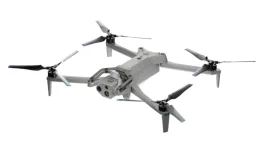- Views: 4K
- Replies: 21

Some defence analysts have criticized the Indian Army's decision to prioritize lighter towed artillery systems over the indigenously developed Advanced Towed Artillery Gun System (ATAGS) for high-altitude warfare.
They argue that the ATAGS, with its superior range and firepower, could provide a significant advantage in mountainous terrain, surpassing any comparable Chinese artillery systems.
The ATAGS boasts a 155mm/52-caliber gun with an extended chamber size, enabling it to achieve an impressive range of up to 50 kilometers. This extended range is particularly valuable in high-altitude regions where thinner air enhances projectile trajectory. Analysts contend that the ATAGS could outperform any lighter 155mm artillery fielded by China in such environments.
However, the Indian Army has reportedly scaled down its ATAGS requirements, citing its 18-ton weight as a major obstacle for deployment in high-altitude areas. This necessitates the use of more powerful towing vehicles, which the Army deems less practical for rapid mobility and logistical efficiency in mountainous terrain.
Instead, the Army has opted for the procurement of a lighter 155mm artillery system, known as the Towed Gun System (TGS), with an expected weight of 15 tons or less. This preference for a lighter system is driven by the need for improved operational flexibility and reduced logistical burdens in challenging high-altitude environments.
Critics argue that this decision to prioritize lighter artillery may compromise firepower and range. They emphasize that the ATAGS is a strategic asset that could provide the Army with a significant edge in long-range precision strikes, particularly in the challenging terrains of Ladakh and Arunachal Pradesh.
While acknowledging the logistical constraints of high-altitude warfare, these analysts suggest a more balanced approach. They propose integrating the ATAGS into specific roles where its extended range and superior firepower can be fully utilized, alongside lighter systems for rapid deployment. This would allow the Indian Army to leverage the strengths of both systems, maximizing its artillery capabilities in diverse operational scenarios.



